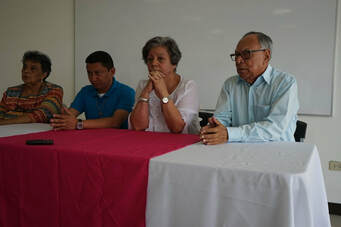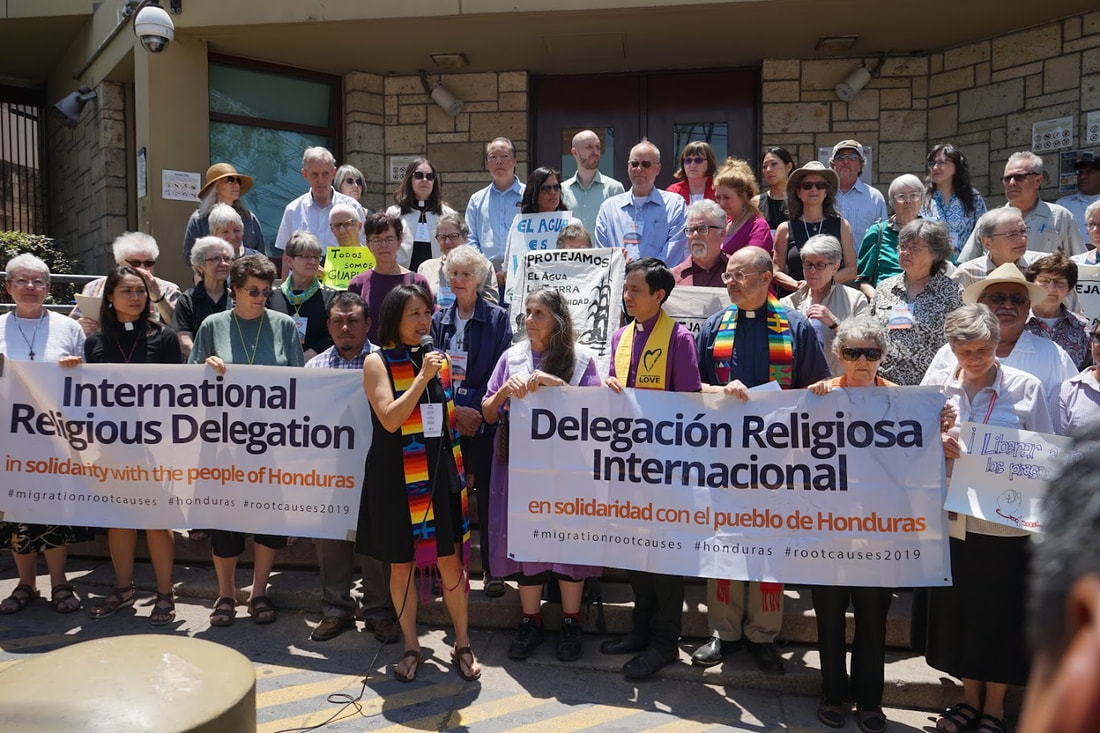 Photo by Mark Coplan
Photo by Mark Coplan Representing the only office specifically charged with protecting human rights, she was saddened by the widespread poverty, violence, and corruption in Honduras. With almost 70 percent of the people living in poverty, it is clear that poverty itself is a human rights issue.
She also decried the lack of investigation of human rights abuse and the overly zealous investigation and detention of human rights defenders. For example, four people arrested in Honduras a year ago for a minor offense protesting the fraudulent presidential election are still in jail awaiting a trial.
Pazo identified part of the problem as the weakness of governmental institutions. I was reminded of the mayor who claimed he opposed the creation of the refinery that would pollute the river, but could find no way to protect the river.
Our next meeting was with Heidi Fulton, Charge d'Affairs, United States Embassy. She said very little but listened to the report of our team's findings and the impassioned testimony of two residents.
Our report centered on the lack of investigations of human rights abuse; the inhibition of free speech, the absence of due process, and public smearing with implied threats.
For example, there has been practically no investigation of the murder of 22 people who were killed after protesting the last election. Meanwhile some 7000 people have legal proceedings against them for engaging in peaceful protests.
The team also deplored the militarization of the Bajo Aguan region where the primary role of the military is defending the interests of the mining companies.
After our meeting with Fulton, we had a news conference where the team reiterated its findings and recommendations.
I was very proud of my fellow team members. They were able to identify the major issues and suggested possible ways of addressing those issues.


 RSS Feed
RSS Feed